GENERAL SEALTECH is a diaphragm product manufacturing enterprise with complete testing equipment and strong technical strength. Our products have excellent quality, reasonable prices, fashionable designs, and are widely used in industries such as chemical industry,Battery industry,Food processing industry.
Our products include Gas meter diaphragms,Rubber diaphragms,Diaphragm Valve pump Diaphragms,Rolling diaphragm,Teflon / PTFE Diaphragm,Solenoid Pulse Valve Diaphragms, etc., and have been widely recognized and trusted by users, able to meet the constantly changing economic and social needs. The product has characteristics such as Resistance to special media,Chemical resistance,High and low temperature resistance and can accept customized products.
| Product Name | sump pump diaphragm |
| Materials | FKM,Silicone,NR,NBR,EPDM,etc |
| Brand Name | GENERAL SEALTECH |
| Place of Origin | China |
| Product Type | Diaphragm |
| Colors | green,Recommended black |
| Sample | Available |
| Hardness | 20~90 Shore A diaphragm for regulator |
| Packing | PE Bag+Carton |
| OEM/ODM | Yes |
| Export region | Oceania,Africa,Asia… |
| Export Country | USA,France,Italy,Australia,Afghanistan,North Korea,Belarus…etc |
| Properties | Aging Resistance,Heat Resistance,Cold Resistance…etc |
| Size | DN max = 2000mm, all other smaller sizes will per customer demands |
| Warranty | 1 Year |
| Function | Seal for Machine,Electrical Appliances,Valve,etc |
| After-sale Service | Online technical support |
| Certification | EN681-1,CCS,RoHS,NSF,WRAS,etc |
| Packaging | carton or according to requirements of the customers |
| Lead time (days) | 7-15 (To be negotiated) |
| Supply Ability | 50000-200000 Piece/Pieces per Month |
Please note: The above table data is for reference only. For specific information, please contact us.
sump pump diaphragm is a material and technology that helps to achieve specific functions or protocols. It is usually used to control the flow of matter and maintain stable states between various fluids in the system.
If the medium used is corrosive, corrosion-resistant diaphragm materials should be selected;
Necessary protective measures should be taken to minimize damage to objects that come into contact with the already installed diaphragm.
All are made of materials that comply with national safety standards, ensuring the safe use of industrial diaphragms.
sump pump diaphragm—FAQs Guide
2.How does the thickness of a sump pump diaphragm affect its flexibility and pressure resistance?
3.How do sump pump diaphragm perform in vacuum applications, and are there special considerations for these conditions?
4.As a sump pump diaphragm manufacturer,Can you supply different color materials?
5.Can sump pump diaphragm be used in applications requiring compliance with industry standards, such as FDA, ASME, or ISO?
6.What is the expected service life of sump pump diaphragm, and how does it vary depending on factors like material and usage?
7.As a sump pump diaphragm manufacturer,what services can we provide?
8.What are the considerations for choosing between elastomeric sump pump diaphragm and non-elastomeric sump pump diaphragm for specific applications?
9.Are there sump pump diaphragm designed for quick and easy replacement to minimize downtime in industrial processes?
10.How do sump pump diaphragm respond to cyclic or pulsating pressure loads, and what is their fatigue life in such conditions?
11.About sump pump diaphragm,How can I get the best price and quality?
12.What innovations and advancements have been made in sump pump diaphragm technology in recent years?
13.What is the role of sump pump diaphragm in controlling the flow of aggressive or corrosive chemicals in chemical processing applications?
14.Do sump pump diaphragm have temperature limitations, and how do they perform in extreme temperature conditions?
15.Can sump pump diaphragm be used in air-operated or pneumatic systems, and how do they contribute to system functionality?
1.Are there sump pump diaphragm designed for pulsation dampening or shock absorption in hydraulic systems?
Yes, there are diaphragms designed for pulsation dampening and shock absorption in hydraulic systems. These diaphragms are typically made of rubber or elastomeric materials and are designed to absorb the shock and vibration of the hydraulic system. They are often used in applications such as hydraulic cylinders, pumps, and valves.
2.How does the thickness of a sump pump diaphragm affect its flexibility and pressure resistance?
The thicker the diaphragm, the less flexible it will be and the more pressure it will be able to resist. This is because thicker diaphragms are more rigid and can withstand higher pressures without deforming. Thinner diaphragms are more flexible and can deform more easily under pressure, but they are also less resistant to pressure.
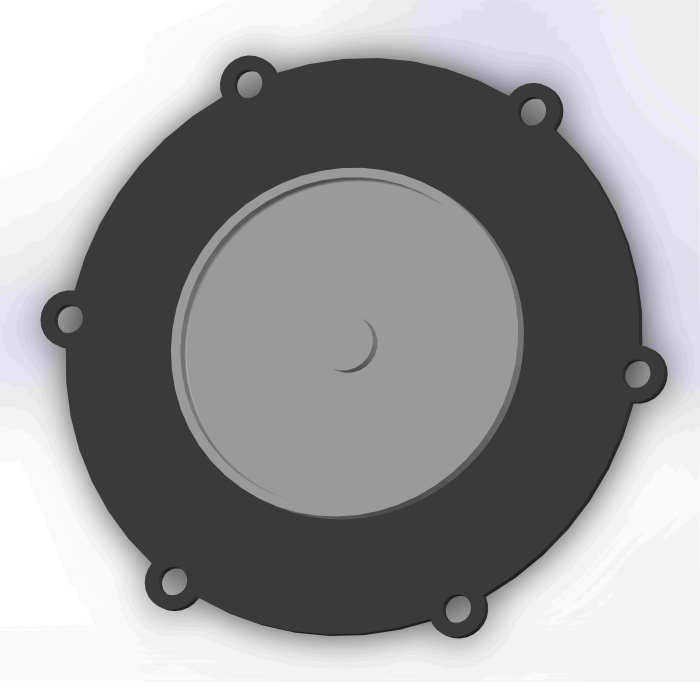
3.How do sump pump diaphragm perform in vacuum applications, and are there special considerations for these conditions?
Diaphragms are commonly used in vacuum applications to control the flow of air or other gases. They are designed to be flexible and resilient, allowing them to maintain a seal even when exposed to low pressure. Special considerations for vacuum applications include the use of materials that are resistant to corrosion and abrasion, as well as the use of a diaphragm with a larger surface area to ensure a better seal. Additionally, the diaphragm should be designed to withstand the extreme temperatures and pressures associated with vacuum applications.
4.As a sump pump diaphragm manufacturer,Can you supply different color materials?
Yes, we can produce custom molded rubber and silicone rubber products in different colors, the color code will be required in case of an order.

5.Can sump pump diaphragm be used in applications requiring compliance with industry standards, such as FDA, ASME, or ISO?
Yes, diaphragms can be used in applications requiring compliance with industry standards, such as FDA, ASME, or ISO. However, the specific requirements of the application must be taken into consideration when selecting the appropriate diaphragm material and design.
6.What is the expected service life of sump pump diaphragm, and how does it vary depending on factors like material and usage?
The expected service life of diaphragms can vary greatly depending on the material and usage. Generally, diaphragms made of rubber or elastomeric materials can last anywhere from 5 to 10 years, depending on the application and environment. Diaphragms made of metal or plastic can last much longer, up to 20 years or more. Factors such as temperature, pressure, and chemical exposure can also affect the service life of diaphragms.
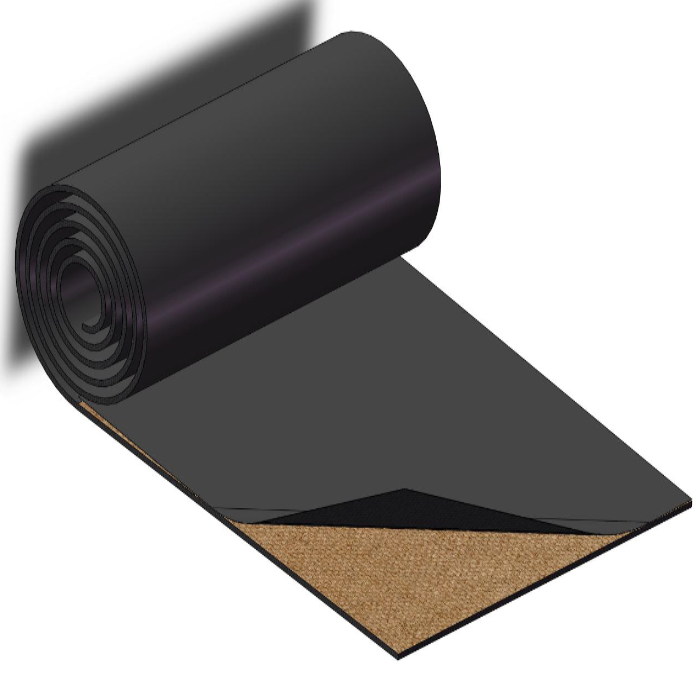
7.As a sump pump diaphragm manufacturer,what services can we provide?
Free design and samples offered.Custom package and stickers.
8.What are the considerations for choosing between elastomeric sump pump diaphragm and non-elastomeric sump pump diaphragm for specific applications?
We are a professional sump pump diaphragm manufacturer, and the factors we consider include:
1. Cost: Elastomeric diaphragms are typically more expensive than non-elastomeric diaphragms.
2. Durability: Elastomeric diaphragms are more durable and can withstand higher pressures and temperatures than non-elastomeric diaphragms.
3. Chemical Compatibility: Elastomeric diaphragms are more resistant to chemical attack than non-elastomeric diaphragms.
4. Flexibility: Elastomeric diaphragms are more flexible than non-elastomeric diaphragms, allowing them to be used in applications where a tight seal is required.
5. Performance: Elastomeric diaphragms are better at maintaining a seal over time than non-elastomeric diaphragms.
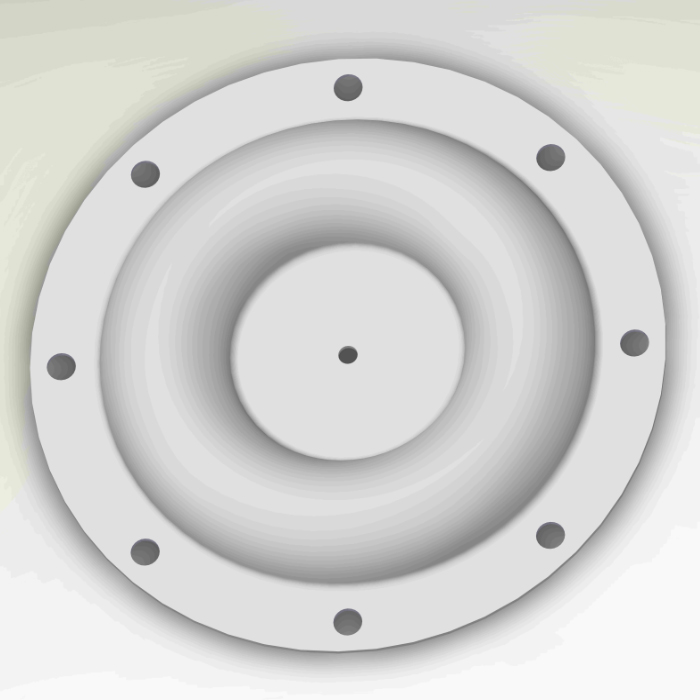
9.Are there sump pump diaphragm designed for quick and easy replacement to minimize downtime in industrial processes?
Yes, there are diaphragms designed for quick and easy replacement to minimize downtime in industrial processes. These diaphragms are typically made of materials such as rubber, silicone, or PTFE, and are designed to be easily replaced without the need for tools or special equipment. Additionally, some diaphragms are designed with quick-connect fittings to further reduce downtime.
10.How do sump pump diaphragm respond to cyclic or pulsating pressure loads, and what is their fatigue life in such conditions?
Diaphragms respond to cyclic or pulsating pressure loads by flexing and deflecting in response to the pressure. The fatigue life of a diaphragm in such conditions depends on the material used, the frequency of the pressure load, and the magnitude of the pressure load. Generally, fatigue life is shorter for higher frequency and higher magnitude pressure loads.
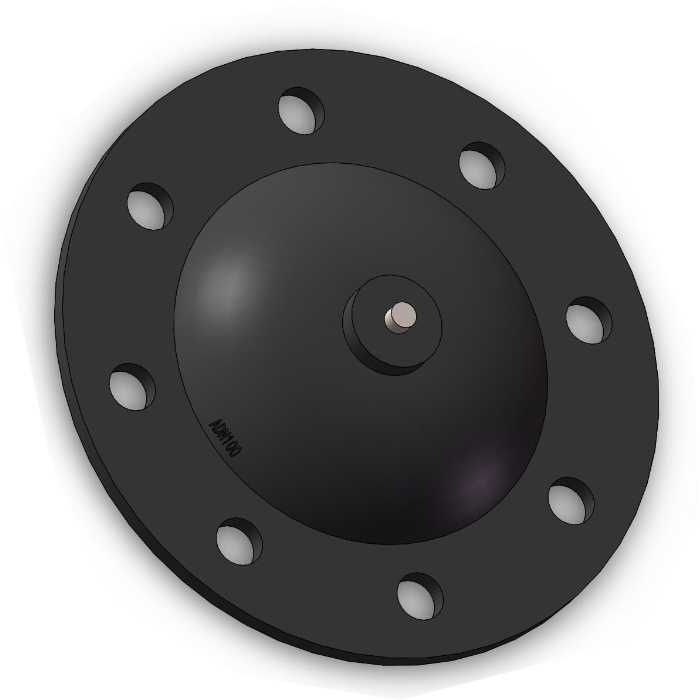
11.About sump pump diaphragm,How can I get the best price and quality?
The price depends on the quantity, design and size. If you order more, the price and shipping will be cheaper.
12.What innovations and advancements have been made in sump pump diaphragm technology in recent years?
With the continuous development of technology, sump pump diaphragm has made a lot of progress, such as:
1. Improved materials: Diaphragms are now made from a variety of materials, including polyurethane, silicone, and other elastomers. These materials are more durable and provide better performance than traditional materials.
2. Improved design: Diaphragms are now designed with more precise tolerances and better sealing capabilities. This allows for better performance and longer life.
3. Improved manufacturing processes: Advances in manufacturing processes have allowed for more efficient production of diaphragms, resulting in lower costs and improved quality.
4. Improved sensing capabilities: Diaphragms are now able to sense pressure, temperature, and other variables, allowing for more accurate control of systems.
5. Improved control systems: Diaphragms are now used in a variety of control systems, including valves, pumps, and other devices. This allows for better control and more efficient operation.
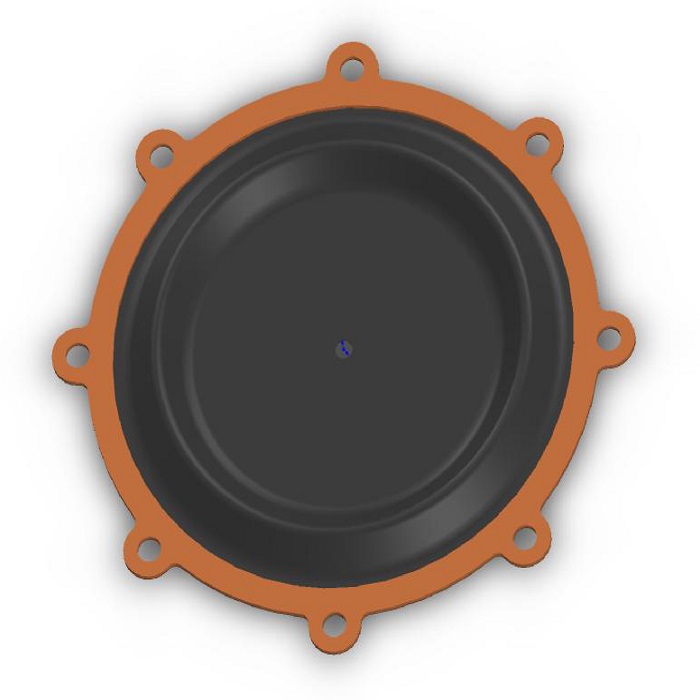
13.What is the role of sump pump diaphragm in controlling the flow of aggressive or corrosive chemicals in chemical processing applications?
Diaphragms are used to control the flow of aggressive or corrosive chemicals in chemical processing applications. They act as a barrier between the chemical and the process equipment, preventing the chemical from coming into contact with the equipment and causing corrosion or other damage. Diaphragms are also used to regulate the flow of the chemical, allowing for precise control of the process.
14.Do sump pump diaphragm have temperature limitations, and how do they perform in extreme temperature conditions?
Diaphragms do have temperature limitations, and their performance in extreme temperature conditions can vary depending on the material used. Generally, diaphragms are designed to operate within a temperature range of -40°F to +250°F (-40°C to +121°C). In extreme temperature conditions, the diaphragm may become brittle and crack, or the material may become too soft and lose its shape. Additionally, the diaphragm may become distorted due to thermal expansion and contraction.
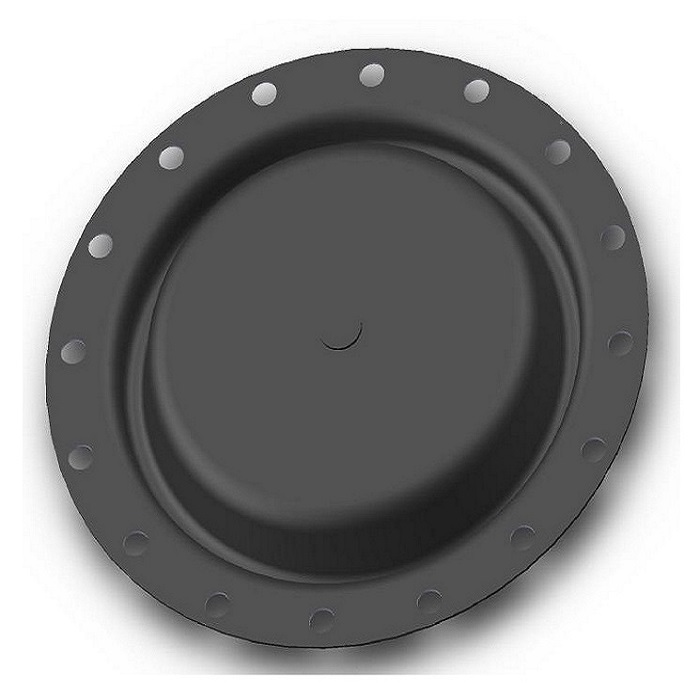
15.Can sump pump diaphragm be used in air-operated or pneumatic systems, and how do they contribute to system functionality?
Yes, diaphragms can be used in air-operated or pneumatic systems. Diaphragms are flexible membranes that are used to separate two different areas of a system. They are used to control the flow of air or other gases in a system. They can be used to regulate the pressure of the system, to control the flow of air, and to act as a check valve. Diaphragms can also be used to dampen vibrations and reduce noise.
Tags: rubber diaphragm for valves,molded rubber diaphragm seals,pierburg vacuum pump diaphragm,cav injector pump diaphragm,wr250f accelerator pump diaphragm

